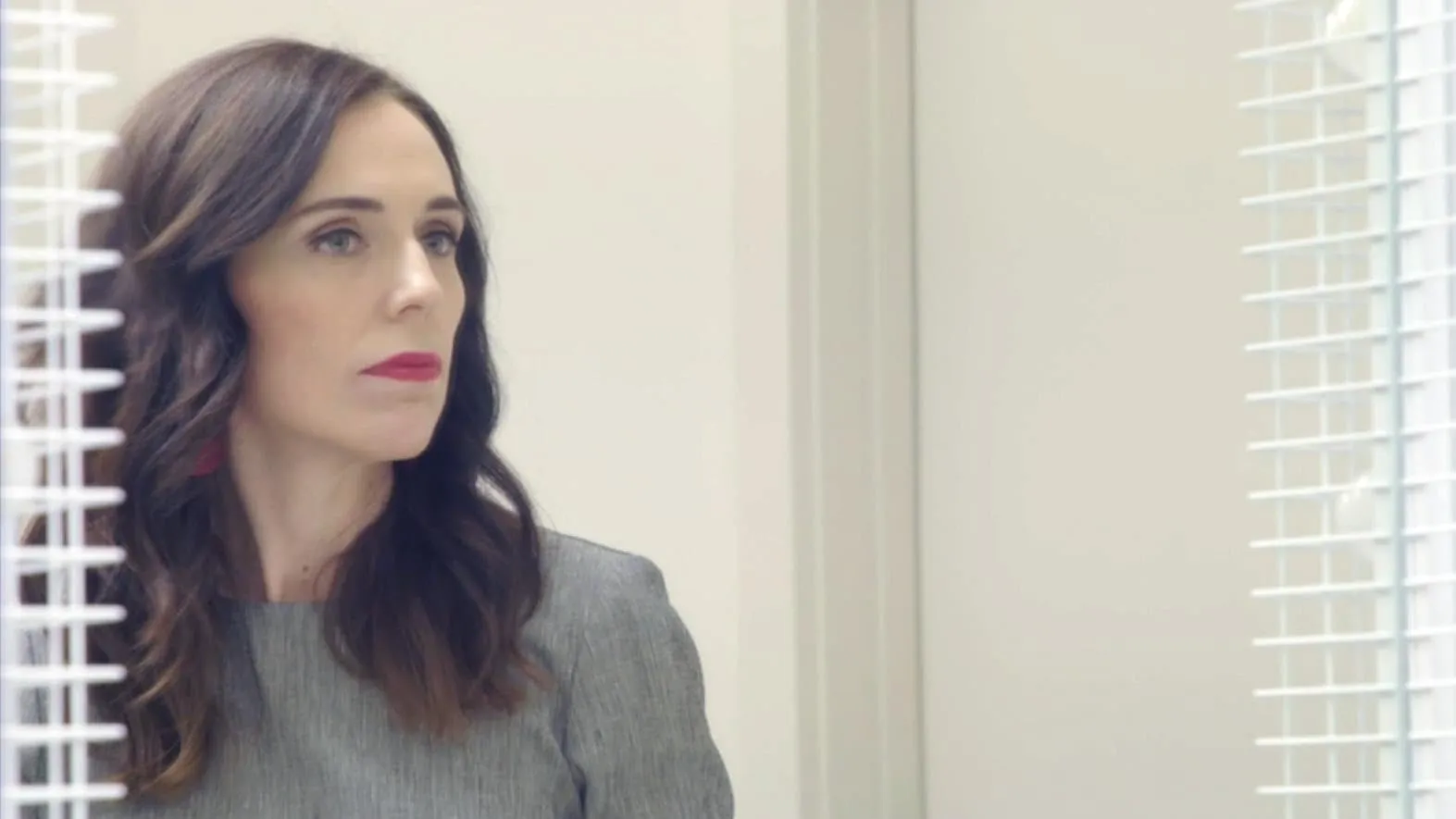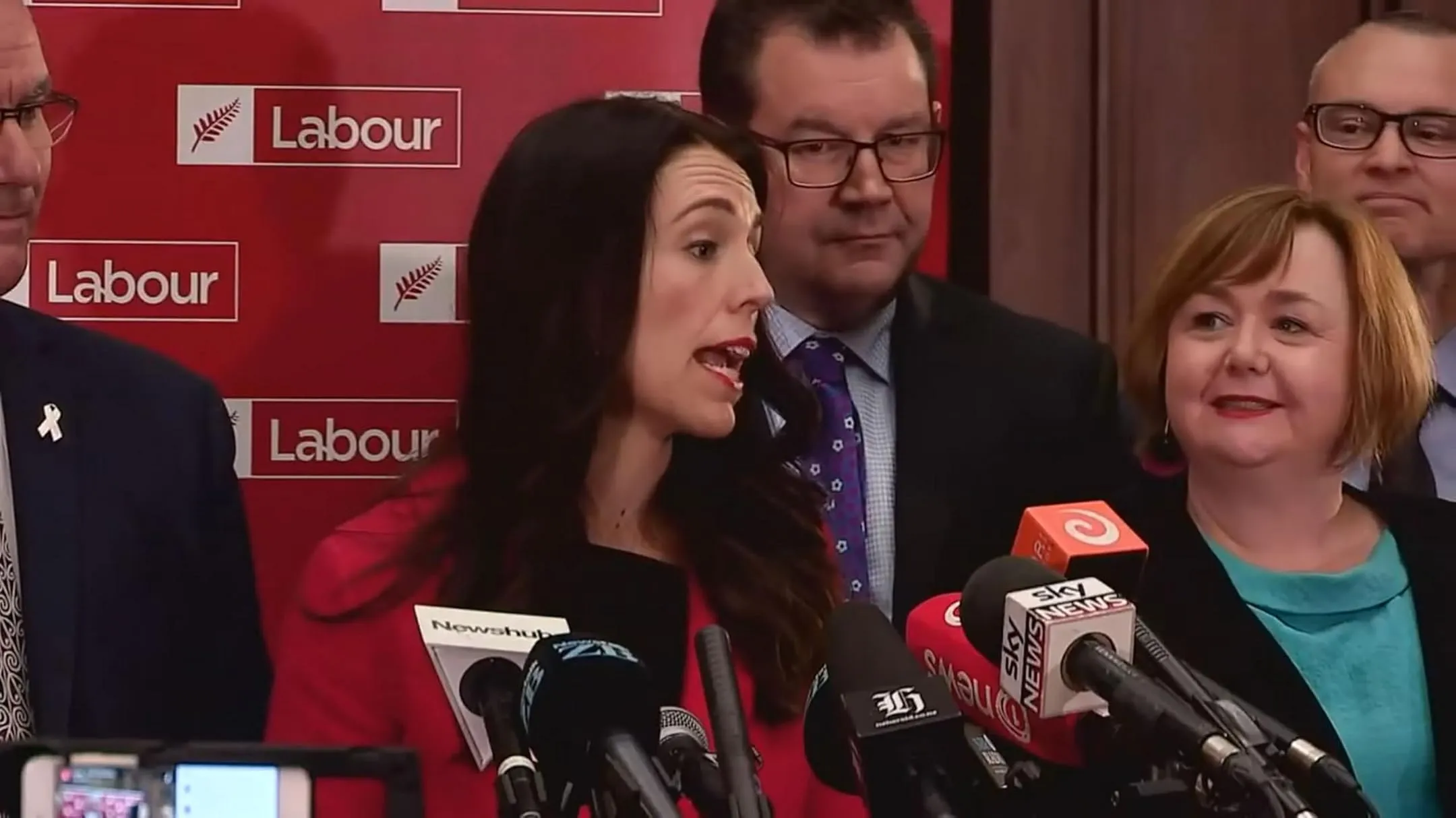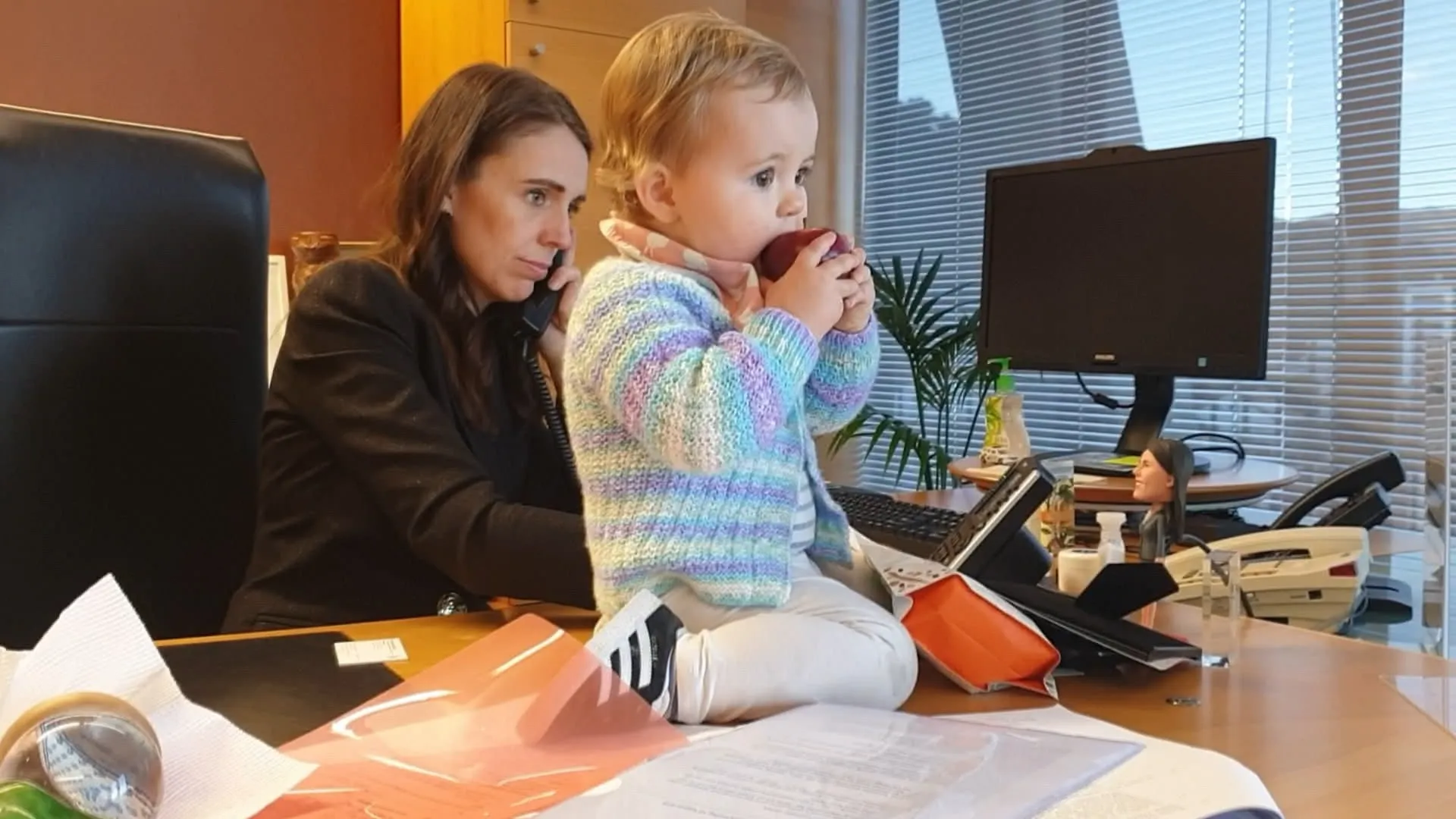To call Prime Minister a political documentary is to miss the point entirely. It operates instead as an intimate character study, charting the astonishingly rapid ascent of Jacinda Ardern, who at 37 became New Zealand’s leader in 2017 just weeks after taking the helm of her party, all while discovering she was pregnant.
The film frames her subsequent five-year term as an intimate chronicle of relentless trial by fire. A stream of national crises—a terror attack, a natural disaster, a global pandemic—forms the turbulent backdrop to her premiership.
By combining official state archives with startlingly personal footage shot within her own home, the film provides a rare perspective on the immense pressures of governance. It bypasses simple political analysis to ask a more profound question: what does leadership look like when its guiding principle is not ideology or power, but a radical commitment to empathy in a world that seems to have forgotten it?
The Personal is Political
The documentary’s startling intimacy is its greatest strength, derived largely from home videos captured by Ardern’s partner, Clarke Gayford. This footage dissolves the carefully constructed barrier between the public stateswoman and the private individual.
Here is Ardern, not at a podium, but confessing her deep-seated anxieties and feelings of imposter syndrome. We witness the raw, unglamorous challenges of new motherhood colliding with the duties of state, including the painful decision to stop breastfeeding because the stress of the office physically prevented it.
Her daughter, Neve, is seen growing up in the corridors of power, a quiet testament to the life being lived behind the headlines. Gayford himself emerges as a significant figure, a dedicated and modern partner whose steady presence redefines the role of a political spouse.
This personal lens is supplemented by audio diaries recorded for an oral history project, capturing Ardern’s reflections in the moment. This unfiltered access becomes the primary vehicle for understanding her motivations and the steep human cost of the position she held.
Leadership Through Crisis
Ardern’s philosophy of governance is tested almost immediately, and the film illustrates how her principle of “kindness” translates into decisive action. Following the 2019 Christchurch mosque massacre, her response is immediate and visceral.
She visits the grieving community, her sorrow palpable, and famously vows never to speak the gunman’s name, denying him the notoriety he craved. Her assertion that “People shouldn’t have to thank you for a humane response” is not just a sentiment; it is a prelude to tangible policy.
In the attack’s aftermath, she successfully marshals the legislature to ban most semi-automatic weapons and assault rifles. When the COVID-19 pandemic arrives, her government implements one of the world’s strictest lockdowns, closing the nation’s borders with the explicit objective of saving lives above all other considerations.
The film briefly touches upon other challenges, like the White Island volcanic eruption, reinforcing the sense of a premiership defined by navigating one storm after another, armed with a belief in compassionate, active governance.
The Toll of Leadership and the Choice to Depart
The film does not shy away from the eventual corrosion of this idealism. The stringent pandemic policies ignite a furious backlash from anti-vaccine protestors, leading to violent threats against Ardern and her family. The private footage reveals the stark physical and emotional toll.
Her weariness is etched on her face; in one unguarded moment, she describes a particularly harrowing week as a “subterraneal space that sits beneath hell.” Her eventual resignation is framed not as a political defeat but as a personal surrender. She explains she no longer has “enough in the tank” and worries her continued presence will only invite attacks that threaten to undo her work.
Throughout the film, she references the story of explorer Ernest Shackleton as her guide—a leader who lost his ship but saved his entire crew. The parallel is clear: for Ardern, success was measured in the lives she protected. The final scenes show her beginning a new life at Harvard, leaving a potent, lingering question about the sustainability of such leadership in our current age.
Prime Minister premiered in a limited theatrical run beginning June 13, 2025, via Magnolia Pictures and debuted at Sundance earlier in the year.
Full Credits
Director: Lindsay Utz, Michelle Walshe
Producers: Cass Avery, Leon Kirkbeck, Gigi Pritzker, Rachel Shane, Katie Peck
Executive Producers: Chris Matson, Michael Cleaver (IMDb doesn’t specify EPs beyond producers)
Cast: Jacinda Ardern
The Review
Prime Minister
Prime Minister is a captivating and deeply humanizing portrait of leadership under unimaginable pressure. Through its remarkable access, the film forgoes traditional political analysis to offer something more resonant: a powerful look at the practical application of empathy in governance and the profound personal cost it exacts. While it occasionally feels more like an authorized biography than a critical examination, its intimate portrayal of a leader navigating crisis with principle and grace makes it compelling and necessary viewing.
PROS
- Offers unprecedented and intimate access to a world leader's life.
- Effectively humanizes the immense pressures and personal toll of governance.
- Provides a powerful and compelling case study of leadership guided by empathy.
- Deftly chronicles a period of relentless and overlapping national crises.
CONS
- Largely avoids complex political maneuvering and opposition viewpoints.
- The insider perspective can feel one-sided, verging on hagiography.
- May leave viewers seeking deep policy analysis wanting more.



















































